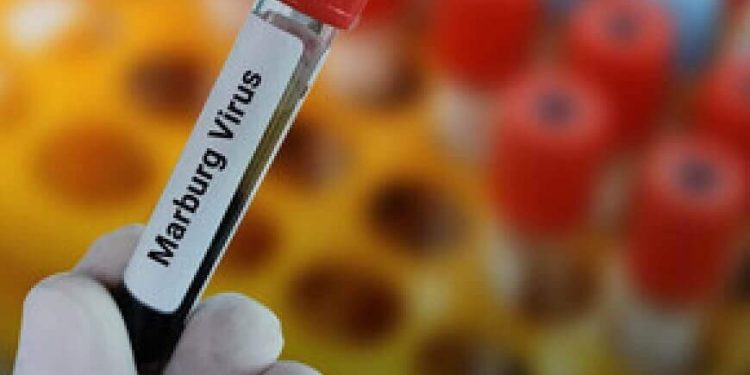The Ethiopia’s Ministry of Health has confirmed an outbreak of Marburg virus disease in the South Ethiopia Region, the first of its kind in the country, following laboratory testing of samples from a cluster of suspected cases of viral haemorrhagic fever.
According to a statement released on Friday, revealing a total of nine cases have been reported in the outbreak that has affected Jinka town in the South Ethiopia Region.
Marburg virus disease is a severe and often fatal illness caused by the Marburg virus, transmitted to humans from fruit bats and spreads among people through direct contact with bodily fluids of the infected individuals or contaminated materials.
Initial symptoms include high fever, severe headache, muscle aches and fatigue. Many patients develop severe bleeding within a week of onset.
Genetic analysis by the Ethiopia Public Health Institute also disclosed that the virus is of the same strain as the one that has been reported in previous outbreaks in other countries in East Africa.
In view of this the national authorities are scaling up response which includes community-wide screening, isolation of cases, treatment, contact tracing and public awareness campaigns to curb the spread of the Marburg virus, which is in the same family of viruses that cause Ebola virus disease. World Health Organization (WHO) Director-General, Dr Tedros Ghebreyesus commended the Ethiopia’s Health for its rapid and transparent response to the outbreak, and the work of the Ethiopia Public Health Institute and regional health authorities.
World Health Organization (WHO) Director-General, Dr Tedros Ghebreyesus commended the Ethiopia’s Health for its rapid and transparent response to the outbreak, and the work of the Ethiopia Public Health Institute and regional health authorities.
Ghebreyesus said, “This fast action demonstrates the seriousness of the country’s commitment to bringing the outbreak under control quickly.
“WHO, at country, regional and headquarters levels, is actively supporting Ethiopia to contain the outbreak and treat infected people, and supporting all efforts to address the potential of cross-border spread”.
Meanwhile, the World Health Organization (WHO) and partners are supporting the government as it intensifies response to halt the spread of the virus and end the outbreak.  Adding that a team of responders with expertise in viral haemorrhagic fever outbreak response has been deployed along with medical supplies and equipment.
Adding that a team of responders with expertise in viral haemorrhagic fever outbreak response has been deployed along with medical supplies and equipment.
Although several promising candidate medical countermeasures are currently undergoing clinical trials, but there is no licensed therapeutic or the vaccine for effective management or prevention of Marburg virus disease.
However, early access to supportive treatment and care – rehydration with oral or intravenous fluids – and treatment of specific symptoms, improve survival.
In the African region, previous outbreaks and sporadic cases have been reported in Angola, the Democratic Republic of the Congo, Ghana, Kenya, Equatorial Guinea, Rwanda, South Africa, Tanzania and Uganda.











